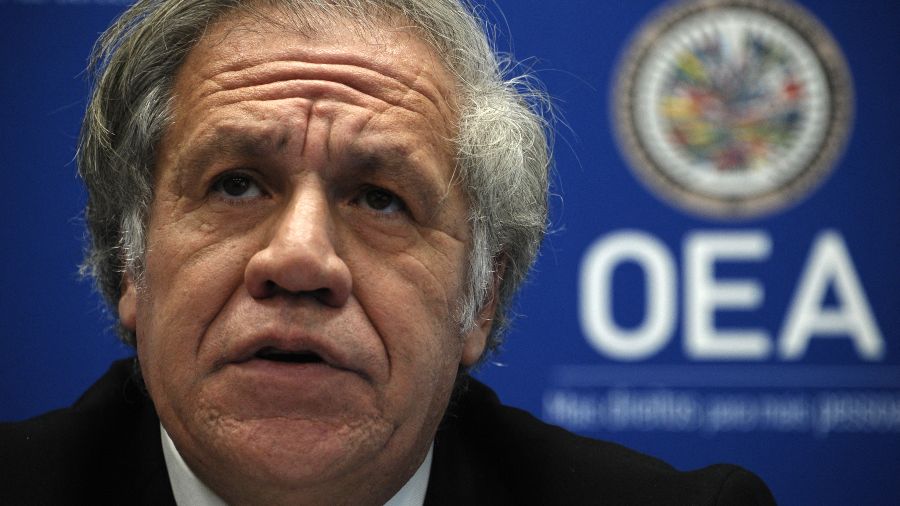
The diplomat also said the OAS should press for financial sanctions on those who violate democracy. “Continuing to give money to a government that stole or does not respect the sovereignty of the people is also like stealing from the people,” he stated.
One of the main arguments of presidents and governments that undermine the rule of law is to denounce “interference” or “interference” when other states and multilateral actors point them to the authoritarian path or the blows to democracy.
They did Hugo Chávez and Nicolás Maduro in Venezuela, Daniel Ortega in Nicaragua, Rafael Correa in Ecuador and almost all the authoritarian “leaders” of recent years. And more recently, here in El Salvador, it is a message that has been uttered by President Nayib Bukele, in the face of waves of condemnation for his anti-democratic conduct.
Regarding this speech denouncing the interference, the Secretary General of the Organization of American States (OAS), Luis Almagro, said on Thursday that “recurrent violators (of democracy and human rights) point out the interfering character “when they are evidenced.
Read also: Bukele attacks Congresswoman Norma Torres and she responds: “It’s not interference to expect you to abide by the laws”
However, Almagro explained that according to the Inter-American Democratic Charter, “democracy and the defense of human rights are not the exclusive internal jurisdiction of states.”
In simpler words, for a president to violate institutionalization and consent to abuses of the rights of his citizens is a problem that involves the entire region and undermines the stability of the entire hemisphere.
Therefore, he stressed, “it is not valid to point out an interfering character” and stressed that it will never be interventionism to ensure democracy in the Americas.
The OAS secretary did not condemn recent actions that suppress judicial independence and enable the re-election of Bukele and merely said that “our technical reports show certain levels of alteration of the constitutional order.” in El Salvador.
This, however, means a change in the positions of the Uruguayan, who only a year and a half ago kept silent in the face of the armed takeover of the Legislative Assembly, said that in the country there was a “vibrant democracy” and described of “hysterical voices” whom they condemned and denounced this fact.
Related note: Constitutional Chamber imposed by the bureaucracy enables the re-election of Bukele
This democracy, he said, must have at least the protection and guarantee of human rights, respect for the rule of law and the independence of powers, a pluralistic regime of political parties, as well as free and fair elections.
In El Salvador, in all these areas mentioned by the Uruguayan diplomat there have been setbacks in the Bukele management. In just over two years of his government, there have been human rights violations by his security forces, as well as beatings on freedom of expression and the press, to name a few. In addition, the president is consolidating power on the basis of coups on judicial independence and capture of control institutions. There has been an instrumentalization of institutions to lash out at critics and opponents, and in the elections there were no a level playing field for all parties.
Financial sanctions and not just diplomatic ones
Almagro acknowledged a loophole in OAS actions, as they are limited to exerting diplomatic pressure and have no more mechanisms in place to ensure that human rights violations cease and democracy is restored.
Faced with this, he noted that it would be worthwhile to explore financial sanctions on states that violate the Inter-American Democratic Charter, which he described as a political and legal reference for governments throughout the hemisphere to adhere to their powers and respect to those who dissent or criticize.
“Financial issues should be tied to democratic guarantees,” Almagro said, concluding, “Continuing to give money to a people who stole or did not respect the sovereignty of the people is also like stealing from the people. “.